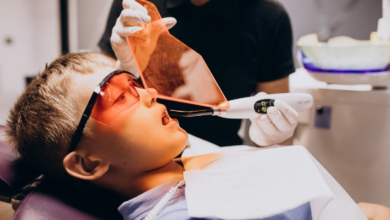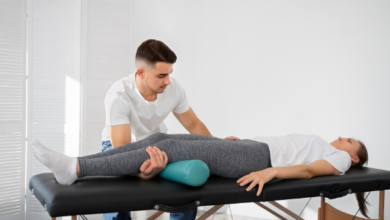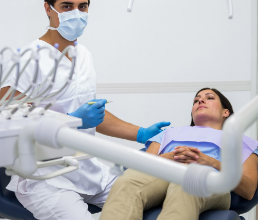Effective Sleep Apnea Treatment in Longmont: Your Guide to Better Sleep

Understanding Sleep Apnea and Its Impact
Let’s talk about sleep apnea, it’s more than just loud snoring. This serious condition can significantly impact your overall health and well-being. In this article, we’ll explore what sleep apnea is, how it affects your daily life, and the importance of seeking proper sleep apnea treatment in Longmont to improve your sleep quality and feel healthier every day.
What Is Sleep Apnea?
Sleep apnea is a sleep disorder where your breathing repeatedly stops and starts. There are a few types, but the most common is obstructive sleep apnea (OSA). This happens when the muscles in the back of your throat relax too much, causing your airway to narrow or close as you sleep. When this happens, your brain senses the lack of oxygen and briefly wakes you up so you can resume breathing. This can happen many times throughout the night, even if you don’t fully realize it.
Common Symptoms to Watch For
Recognizing the symptoms is the first step in getting help. Here are some common signs of sleep apnea:
- Loud snoring, often interrupted by pauses and gasps.
- Waking up with a dry mouth or sore throat.
- Morning headaches.
- Feeling excessively sleepy during the day, even after a full night’s sleep.
- Difficulty concentrating or remembering things.
- Irritability, mood swings, or depression.
- Night sweats.
Ignoring these symptoms can lead to serious health problems down the road. It’s important to talk to a doctor if you think you might have sleep apnea.
The Importance of Diagnosis
Getting a proper diagnosis is super important. Untreated sleep apnea can lead to a whole bunch of health issues. Here’s why you shouldn’t ignore it:
- Heart Problems: Sleep apnea puts extra stress on your heart, increasing your risk of high blood pressure, heart attack, stroke, and irregular heartbeats.
- Diabetes: It can make it harder to control your blood sugar, increasing the risk of type 2 diabetes.
- Daytime Fatigue: The constant interruptions to your sleep can lead to excessive daytime sleepiness, making it hard to focus at work or school and increasing your risk of accidents.
- Cognitive Issues: Sleep apnea can affect your memory, concentration, and overall cognitive function.
- Mental Health: It’s linked to an increased risk of depression and anxiety.
So, if you suspect you have sleep apnea, don’t wait. Talk to a healthcare professional to get tested and start treatment. It could make a huge difference in your overall health and well-being.
Effective Treatment Options Available
So, you’ve been diagnosed with sleep apnea. What’s next? Luckily, there are several effective treatment options available to help you get a good night’s sleep. It’s not a one-size-fits-all situation, so finding the right approach for you is key. Let’s explore some common and effective treatments.
Oral Appliances for Sleep Apnea
Think of these as custom-fitted mouthguards. They work by keeping your airway open while you sleep. Here’s the deal:
- They reposition your lower jaw, tongue, or both. This helps prevent the soft tissues in your throat from collapsing and blocking airflow.
- They’re generally more comfortable than CPAP machines for some people.
- They’re easy to travel with.
CPAP Alternatives
CPAP (Continuous Positive Airway Pressure) is a common treatment, but it’s not for everyone. Some people find the mask uncomfortable or the machine noisy. The good news is there are alternatives:
- Positional Therapy: This involves using pillows or devices to keep you from sleeping on your back, as this position can worsen sleep apnea.
- Surgery: In some cases, surgery to remove excess tissue in the throat or nose can help open up the airway. It’s usually considered when other options haven’t worked.
- Expiratory Positive Airway Pressure (EPAP) devices: These are small, disposable devices that you place in your nostrils before bed. They create resistance when you exhale, which can help keep your airway open.
Lifestyle Changes to Improve Sleep
Sometimes, simple changes to your daily routine can make a big difference in managing sleep apnea:
- Weight Loss: If you’re overweight or obese, losing even a small amount of weight can reduce the severity of your sleep apnea.
- Avoid Alcohol and Sedatives: These substances can relax the muscles in your throat, making it easier for your airway to collapse.
- Quit Smoking: Smoking can irritate and inflame the airways, which can worsen sleep apnea.
Making lifestyle adjustments can significantly improve sleep apnea symptoms. It’s about creating a routine that supports better breathing and relaxation during sleep. Small changes can lead to big improvements in your overall sleep quality.
Choosing the Right Provider in Longmont
Finding the right healthcare provider for sleep apnea is a really important step toward getting better sleep and improving your overall health. If you’re looking for a dentist in Longmont or a sleep specialist, it’s good to know what to look for and where to start.
Local Clinics Specializing in Sleep Apnea
Longmont has a few clinics that focus on sleep disorders. These places often have doctors and specialists who know a lot about sleep apnea and can offer different treatment options. Here’s what you might find at these clinics:
- Sleep Studies: They can do tests to figure out how bad your sleep apnea is.
- Treatment Options: They can offer things like CPAP machines, oral appliances, and advice on lifestyle changes.
- Follow-Up Care: They can help you manage your treatment and make sure it’s working.
What to Look for in a Sleep Specialist
When you’re picking a sleep specialist, think about these things:
- Credentials: Make sure they’re board-certified in sleep medicine. This means they’ve had extra training and passed tests to show they know their stuff.
- Experience: Find out how long they’ve been treating sleep apnea and what kind of cases they’ve handled.
- Communication: Pick someone who listens to you, answers your questions clearly, and makes you feel comfortable.
Patient Reviews and Testimonials
Before you decide on a provider, check out what other patients have to say. Reviews and testimonials can give you a sense of what it’s like to be treated by them. Look for comments about:
- Bedside Manner: Do they seem caring and attentive?
- Treatment Success: Have other patients had good results?
- Office Environment: Is the office clean, organized, and welcoming?
Choosing the right provider can feel overwhelming, but taking the time to research and find someone who meets your needs is worth it. A good provider will not only diagnose and treat your sleep apnea but also support you throughout the process, helping you achieve better sleep and a healthier life.
Innovative Technologies in Sleep Apnea Treatment
Sleep apnea treatment has come a long way, and Longmont residents now have access to some pretty cool innovative technologies that can make a real difference in their sleep quality. It’s not just about CPAP machines anymore; there are other options to explore.
Home Sleep Testing Solutions
Gone are the days when you had to spend a night in a lab to get tested for sleep apnea. Now, there are home sleep testing kits that you can use in the comfort of your own bed. These kits usually include sensors that monitor your:
- Breathing patterns
- Oxygen levels
- Heart rate while you sleep.
You send the data back to a doctor, who can then diagnose you. It’s way more convenient and can be less intimidating than a lab setting.
Advanced Treatment Devices
CPAP machines are still around, but they’ve gotten a lot more advanced. Newer models are smaller, quieter, and more comfortable. Plus, there are other devices like oral appliances, which are custom-fitted mouthguards that help keep your airway open while you sleep. Some devices even use gentle electrical stimulation to keep your tongue from collapsing. It’s all about finding what works best for you.
Telehealth Options for Convenience
Telehealth is making it easier than ever to manage sleep apnea. You can have virtual appointments with doctors, get your CPAP settings adjusted remotely, and even participate in online support groups. This is especially helpful if you live far from a specialist or have a busy schedule. It’s like having a sleep clinic in your living room.
Telehealth options include:
- Virtual consultations with sleep specialists
- Remote monitoring of CPAP usage
- Online support groups for sleep apnea patients
Lifestyle Adjustments for Better Sleep Quality
It’s easy to underestimate how much your daily habits affect your sleep. When dealing with sleep apnea, lifestyle adjustments can make a huge difference in managing symptoms and improving overall sleep quality. These changes aren’t a quick fix, but they can be a really important part of your treatment plan.
Diet and Nutrition Tips
What you eat and when you eat it can mess with your sleep. Here are a few things I’ve found helpful:
- Avoid big meals close to bedtime: Give your body a few hours to digest before hitting the hay. A heavy meal right before sleep can lead to discomfort and disrupt your sleep cycle.
- Limit caffeine and alcohol: These substances can interfere with your ability to fall asleep and stay asleep. Try to cut them out, especially in the afternoon and evening.
- Stay hydrated, but not too much before bed: Dehydration can wake you up, but so can a full bladder. Find a good balance throughout the day.
Exercise and Sleep Hygiene
Getting active and creating a relaxing bedtime routine can work wonders.
- Regular exercise: Aim for at least 30 minutes of moderate exercise most days of the week. Just don’t work out too close to bedtime, or you might find it hard to wind down.
- Consistent sleep schedule: Go to bed and wake up around the same time every day, even on weekends. This helps regulate your body’s natural sleep-wake cycle.
- Create a relaxing bedtime routine: This could include taking a warm bath, reading a book, or listening to calming music. The goal is to signal to your body that it’s time to sleep.
Stress Management Techniques
Stress is a major sleep killer. Finding ways to manage stress can significantly improve your sleep.
- Mindfulness and meditation: Even a few minutes of daily mindfulness can help calm your mind and reduce stress.
- Deep breathing exercises: These can help you relax and prepare for sleep. Try taking slow, deep breaths before bed.
- Journaling: Writing down your thoughts and feelings can help you process them and clear your mind before sleep.
Making these lifestyle changes isn’t always easy, but the payoff is worth it. Better sleep means more energy, improved mood, and better overall health. It’s about finding what works for you and sticking with it. Small changes can add up to big improvements in your sleep quality.
Longmont Community Resources for Sleep Health
It’s good to know that if you’re dealing with sleep apnea, you’re not alone. Longmont has a bunch of Longmont Community Resources for Sleep Health that can help you get better sleep. These resources range from support groups to educational programs, all aimed at improving your sleep and overall well-being. Let’s check out what’s available.
Support Groups and Workshops
Finding a support group can make a huge difference. It’s a place where you can share your experiences, learn from others, and get advice. Here’s what you might find:
- Local Hospitals: Many hospitals in Longmont host support groups specifically for people with sleep disorders.
- Community Centers: Check out your local community center for workshops on sleep hygiene and managing sleep apnea.
- Online Forums: Sometimes, connecting online can be just as helpful. Look for forums or groups related to sleep apnea in Colorado.
Educational Resources
Understanding sleep apnea is the first step to managing it. There are tons of resources out there to help you learn more:
- Library Programs: The Longmont Public Library often has health-related programs, including talks about sleep disorders.
- Doctor’s Offices: Your doctor’s office is a great place to get brochures and information about sleep apnea.
- Websites: Websites like the American Sleep Apnea Association have a wealth of information.
Local Health Events
Keep an eye out for health events in Longmont. These events can be a great way to learn about new treatments and connect with healthcare professionals.
- Health Fairs: Local health fairs often have booths dedicated to sleep health.
- Workshops: Hospitals and clinics sometimes host free workshops on sleep apnea.
- Community Seminars: Check the local event listings for seminars on health and wellness.
Dealing with sleep apnea can be tough, but remember, you’re not on your own. Longmont has a supportive community and plenty of resources to help you get the rest you need. Take advantage of these opportunities to improve your sleep and overall health.
Insurance and Payment Options for Treatment
Navigating the financial aspects of sleep apnea treatment can feel overwhelming, but understanding your insurance and payment options is a key step toward getting the care you need in Longmont. Let’s break down what you should know.
Understanding Coverage for Sleep Apnea
Most medical insurance plans recognize sleep apnea as a legitimate medical condition, which means treatment is often covered, at least partially. However, the specifics can vary widely depending on your plan. Here’s what to keep in mind:
- Deductibles and Co-pays: Be aware of your deductible (the amount you pay out-of-pocket before insurance kicks in) and co-pays (the fixed amount you pay for each visit or treatment).
- Pre-authorization: Some treatments, like CPAP machines or oral appliances, might require pre-authorization from your insurance company. This means your doctor needs to get approval before you start treatment.
- In-network vs. Out-of-network: Staying in-network (seeing providers who have agreements with your insurance company) usually results in lower costs. Check if your sleep specialist and any labs or equipment suppliers are in your network.
Flexible Payment Plans
If you’re uninsured or your insurance doesn’t cover the full cost of treatment, don’t panic! Many clinics in Longmont offer flexible payment plans to make care more accessible. These plans can include:
- Installment options: Breaking down the total cost into smaller, monthly payments.
- Financing through third-party lenders: Some clinics partner with companies that offer medical financing with varying interest rates and terms.
- CareCredit: A credit card specifically for healthcare expenses, often with promotional periods of deferred interest.
Membership Programs for Care
Some dental or sleep medicine practices in Longmont offer membership programs as an alternative to traditional insurance. These programs typically involve paying a monthly or annual fee in exchange for:
- Discounted rates: Reduced prices on exams, treatments, and equipment.
- Included services: Some programs include basic services like regular check-ups or cleanings in the membership fee.
- No waiting periods or deductibles: Unlike insurance, membership programs often have no waiting periods or deductibles to meet before receiving benefits.
It’s always a good idea to contact your insurance provider directly to understand your specific coverage for sleep apnea treatment. Ask about deductibles, co-pays, pre-authorization requirements, and in-network providers. Don’t hesitate to ask the clinic’s billing department for help understanding your options and navigating the insurance process.





